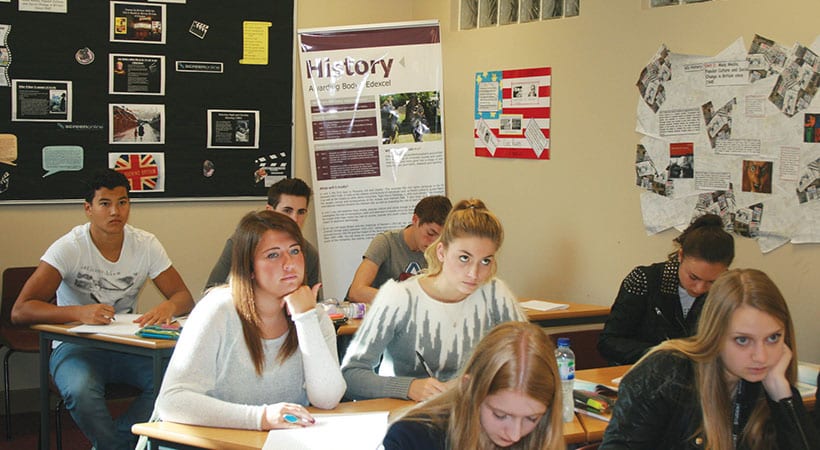What are the entry requirements?
5 GCSEs at A* – C including English and History.
Course Outline
AS:
Unit 1: Period Study: England 1445-1509: Lancastrians, Yorkists and Henry VII
Unit 2: The Cold War in Asia 1945-1993
A2:
Unit 1: Period Study: England 1445-1509: Lancastrians, Yorkists and Henry VII
Unit 2: The Cold War in Asia 1945-1993
Unit 3: Either Rebellion and Disorder under the Tudors 1485-1603 or Civil Rights in the USA 1865-1992
Unit 4: Coursework
How will I be assessed?
Unit 1: One period study essay from a choice of three (40 marks). One document based enquiry study (60 marks)Exam duration: 1 hour 30 minutes 25% of A-Level
Unit 2: One ‘mini-essay’ (20 marks). One period study essay from a choice of three (40 marks). Exam Duration: 1 hour 15% of A-Level
Unit 3: Two theme questions from a choice of three, all covering 100 years (40 marks). One interpretation question (60 marks). Exam Duration: 2 hours 30 minutes 40% of A-Level
Unit 4: Coursework. A single 3,000-4,000 word essay. Personal Study
What will I study?
In Unit 1 students have to complete a British period study and enquiry with the two parts constituting a substantial and coherent element of British history. In the period study students will concentrate on England between 1445-1509 with students analysing and comparing the reigns of Edward IV, Richard III and Henry VII. They will explore both domestic and foreign policy and the relative success of such.
The enquiry study is on the War of the Roses 1445-1461. It is a source based study that precedes the period study. Particular focus of the enquiry will be on the outbreak of the wars in 1445-50 and the early actions of Richard Duke of York. Finally students will analyse why he was defeated and the implications of such.
In Unit 2 students have to study a non-British option and the option offered at Appleton College is ‘The Cold War in Asia 1945-1993’. The unit starts by exploring Western Policies in post-war Asia between 1945-1979 e.g. the creation of model states (occupation and reconstruction of Japan) and the US policy towards China. Students will then investigate the causes, course and consequences of the wars in Korea, Vietnam and Cambodia.
Unit 3 is a historical themes and interpretations unit. It involves a thematic study covering an extended period of history of at least 100 years and a depth study looking at key events, individuals or issues within the theme. Within the Tudor Rebellion option students will analyse the main causes of rebellion and disorder in the Tudor period as well as the frequency and nature of such. Students will compare and contrast a range of Tudor rebellions and evaluate their impact on the Tudor government. Within the Civil Rights Unit students will look at the discrimination faced by a variety of groups including African- Americans, Native Americans and Women and the campaigns of each to address such. They will in particular focus on the African-American civil rights movement and investigate the impact of individuals such as Martin Luther King and Malcolm X.
Unit 4 is the internally assessed element of the course and provides students with the opportunity to explore a topic of personal interest. The essay is independently researched and should explain and analyse different perspectives on a clearly stated historical issue, drawing on a range of primary and secondary source material. The essay focus may arise from a period or topic in Units 1, 2 or 3 or may be on a period or topic, which the student has not studied as part of the A-Level course.
Where can it lead me?
History provides an excellent academic and skill base for a wide range of university courses and careers. The various skills required by the specification provide opportunities for progression directly into employment but equally also contribute to students’ lifelong learning, especially through key skills. History students have gone into a range of areas including law, journalism, research and teaching.


